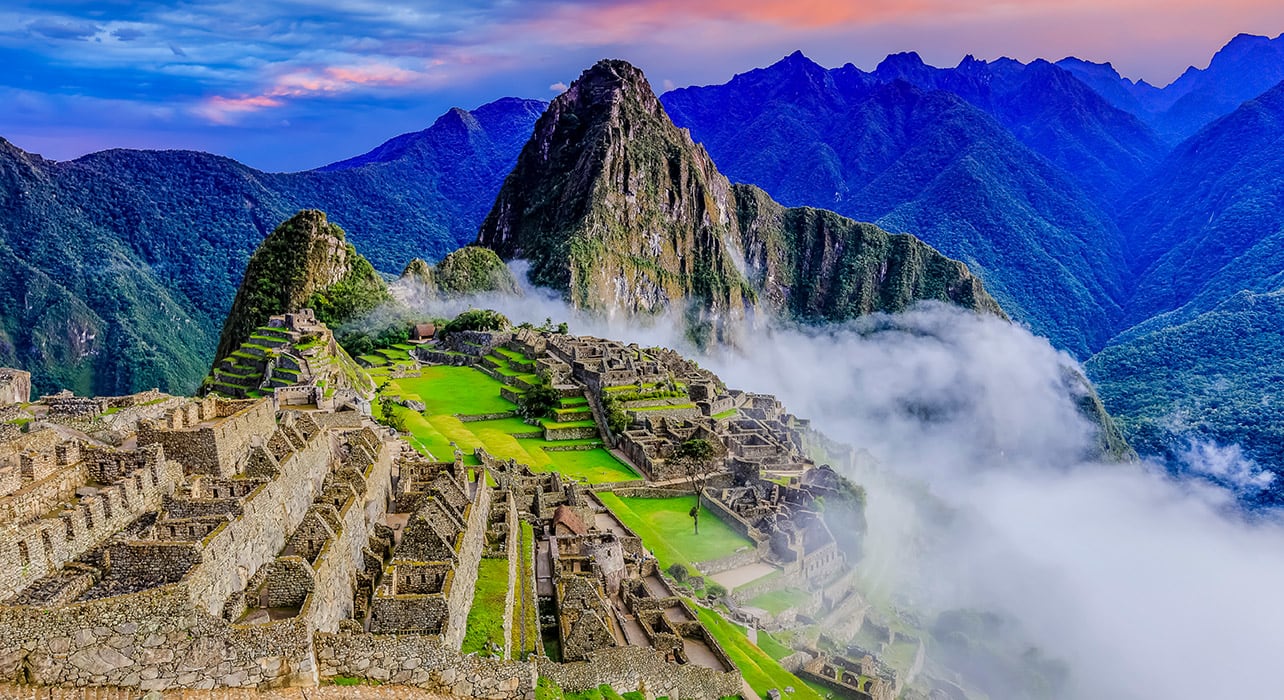Machu Picchu Travel Guide: How to Visit the Lost City of the Incas
Introduction to Machu Picchu
Perched high in the Andes mountains of Peru, Machu Picchu is one of the world’s most extraordinary archaeological sites. Known as the “Lost City of the Incas,” this majestic citadel attracts millions of travelers each year who seek to uncover its mysteries and marvel at its breathtaking beauty.

Whether you are a history buff, adventure lover, or nature enthusiast, Machu Picchu offers a captivating experience that combines ancient culture, spectacular landscapes, and challenging treks.
📍 Where Is Machu Picchu?
Located in the Cusco Region, Peru, about 80 kilometers northwest of the city of Cusco.
Sits at an altitude of approximately 2,430 meters (7,970 feet) above sea level.
Nestled between the peaks of Mount Machu Picchu and Huayna Picchu.
🏛️ History and Significance of Machu Picchu
Built in the 15th century under the reign of Inca emperor Pachacuti.
Believed to be a royal estate or sacred religious site.
Hidden from Spanish conquistadors and rediscovered in 1911 by American historian Hiram Bingham.
Declared a UNESCO World Heritage Site in 1983.
An icon of Inca architecture and ingenuity, showcasing sophisticated stone construction and terracing.
🗺️ How to Get to Machu Picchu
1. Train from Cusco or Sacred Valley to Aguas Calientes
Most popular way.
Trains depart from Poroy station (near Cusco) or Ollantaytambo in the Sacred Valley.
Train ride takes 3-4 hours to Aguas Calientes (the town below Machu Picchu).
2. Hiking the Inca Trail
Classic 4-day trek through cloud forests, passing Inca ruins.
Requires advance permits and physical fitness.
Ends at Machu Picchu early morning for sunrise entry.
3. Alternative Treks
Salkantay Trek: 5 days, high mountain views.
Lares Trek: Cultural villages and hot springs.
Choquequirao Trek: More remote Inca ruins en route.
🎟️ Machu Picchu Tickets and Entry Information
Tickets are limited daily to protect the site.
Purchase in advance online or via authorized agencies.
Ticket types:
Entrance only to Machu Picchu.
Machu Picchu + Huayna Picchu mountain.
Machu Picchu + Machu Picchu Mountain.
Entry time slots and guided tours are recommended.
🏞️ Exploring Machu Picchu: What to See
1. The Main Plaza
Central open area, surrounded by temples and residences.
2. Temple of the Sun
Semi-circular building with astronomical alignments.
3. Intihuatana Stone
Ritual stone thought to be an Inca solar clock.
4. The Royal Tomb
Underground chamber beneath the Temple of the Sun.
5. Terraces and Agricultural Areas
Ingenious farming terraces that prevented erosion.
6. Huayna Picchu and Machu Picchu Mountain
Challenging hikes with panoramic views over the ruins and surrounding jungle.
🌄 Best Time to Visit Machu Picchu
| Season | Months | Conditions |
|---|---|---|
| Dry Season | May – September | Best weather, ideal trekking |
| Wet Season | October – April | Rainier, fewer tourists |
🌞 Early mornings and weekdays are less crowded.
🧳 What to Pack for Machu Picchu
Comfortable hiking shoes or boots
Rain jacket or poncho (especially during wet season)
Sun protection: hat, sunglasses, sunscreen
Water bottle (no plastic bottles allowed inside, use refill stations)
Camera or smartphone for photos
Light backpack with snacks and essentials
🛏️ Where to Stay Near Machu Picchu
Aguas Calientes (Machu Picchu Pueblo)
Small town at the base of the mountain.
Wide range of accommodations: budget hostels, mid-range hotels, luxury lodges.
Popular options:
Inkaterra Machu Picchu Pueblo Hotel (luxury eco-lodge)
Tierra Viva Machu Picchu
Supertramp Hostel (budget-friendly)
🧭 Tips for Visiting Machu Picchu
Start early to avoid crowds and catch sunrise views.
Bring cash for souvenirs and small expenses.
Use a licensed guide for richer understanding.
Respect rules: no drones, no food inside, no climbing ruins not open to the public.
Allow time to acclimate in Cusco before going to Machu Picchu.
🏞️ Alternative Attractions Nearby
Machu Picchu Museum in Aguas Calientes
Hot springs in Aguas Calientes for post-hike relaxation
Ollantaytambo ruins and town in Sacred Valley
Maras Salt Mines and Moray Agricultural Terraces
🚶 Sample Machu Picchu Day Itinerary
Morning:
Take the earliest bus from Aguas Calientes to Machu Picchu.
Explore the main ruins with a guide.
Hike Huayna Picchu or Machu Picchu Mountain (if ticketed).
Afternoon:
Return to Aguas Calientes for lunch.
Relax in the hot springs or visit the local market.
Take the train back to Cusco or Ollantaytambo.
💬 FAQs About Machu Picchu
Do I need a guide?
Not mandatory but highly recommended to appreciate the history and culture.
How long should I stay?
One full day is typical, but 2 days allow a more relaxed pace and additional hikes.
Can I visit Machu Picchu without hiking?
Yes, the train and bus make it accessible to all travelers.
🌟 Why Machu Picchu Should Be On Your Bucket List
Machu Picchu is not just a stunning archaeological site; it’s a testament to human ingenuity, culture, and mystery. It offers a once-in-a-lifetime opportunity to connect with the past amidst breathtaking natural beauty.
Whether you arrive by train or on foot via the legendary Inca Trail, the experience will leave you inspired, humbled, and in awe.
